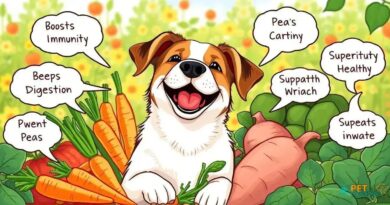What is Non-toxic foods
What is Non-toxic Foods?
Non-toxic foods refer to those edible items that do not contain harmful substances or chemicals that could adversely affect the health of dogs. Understanding what constitutes non-toxic foods is essential for pet owners who wish to provide their furry friends with safe and nutritious meals. These foods are not only safe for dogs but also contribute to their overall well-being, promoting a healthy lifestyle.
Importance of Non-toxic Foods for Dogs
Feeding dogs non-toxic foods is crucial for preventing various health issues. Many common human foods can be toxic to dogs, leading to symptoms ranging from mild gastrointestinal upset to severe poisoning. By focusing on non-toxic options, pet owners can ensure that their dogs receive the nutrients they need without the risk of harmful side effects. This proactive approach to canine nutrition fosters a longer, healthier life for pets.
Examples of Non-toxic Foods
There are numerous non-toxic foods that are safe for dogs to consume. Some popular examples include carrots, apples, blueberries, and sweet potatoes. These foods not only provide essential vitamins and minerals but also serve as healthy treats that dogs enjoy. Incorporating a variety of non-toxic foods into a dog’s diet can enhance their overall health and happiness.
How to Identify Non-toxic Foods
Identifying non-toxic foods involves understanding which ingredients are safe for dogs. Reading labels and researching food items can help pet owners make informed decisions. Additionally, consulting with a veterinarian can provide valuable insights into which foods are beneficial and which should be avoided. This knowledge empowers pet owners to create balanced diets tailored to their dogs’ specific needs.
Benefits of Feeding Non-toxic Foods
Feeding non-toxic foods offers numerous benefits for dogs. These foods can improve digestion, boost the immune system, and enhance coat health. Furthermore, non-toxic foods are often rich in antioxidants and other beneficial compounds that support overall canine health. By prioritizing non-toxic options, pet owners can significantly impact their dogs’ quality of life.
Common Toxic Foods to Avoid
While understanding non-toxic foods is essential, it is equally important to be aware of common toxic foods that should be avoided. Items such as chocolate, grapes, onions, and garlic can pose serious health risks to dogs. Educating oneself about these harmful foods is vital for preventing accidental ingestion and ensuring a safe diet for pets.
How to Transition to Non-toxic Foods
Transitioning to non-toxic foods should be done gradually to avoid digestive upset. Pet owners can start by mixing small amounts of non-toxic foods with their dog’s regular diet, slowly increasing the proportion over time. This gradual approach allows dogs to adjust to new flavors and textures while minimizing the risk of gastrointestinal issues.
Homemade Non-toxic Dog Food Recipes
Creating homemade non-toxic dog food is an excellent way to ensure that pets receive high-quality nutrition. Simple recipes can include ingredients like lean meats, vegetables, and whole grains. By preparing meals at home, pet owners can control the ingredients and avoid harmful additives, ensuring that their dogs enjoy safe and nutritious meals.
Consulting with a Veterinarian
Before making significant changes to a dog’s diet, it is advisable to consult with a veterinarian. A professional can provide tailored recommendations based on a dog’s specific health needs and dietary requirements. This collaboration ensures that pet owners make informed choices about non-toxic foods and maintain their dogs’ health and well-being.
Conclusion on Non-toxic Foods
Understanding what non-toxic foods are and their importance in a dog’s diet is essential for every pet owner. By prioritizing safe and nutritious options, pet owners can enhance their dogs’ health, prevent potential health issues, and foster a loving and supportive environment for their furry companions.

